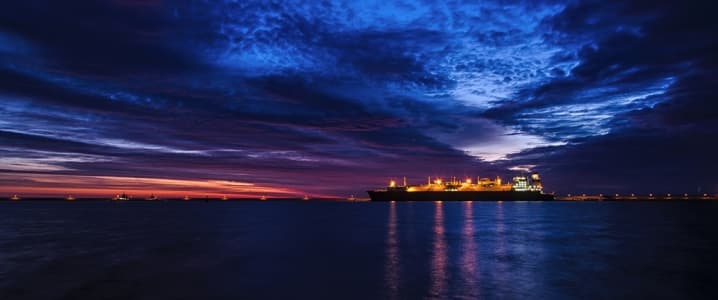Europe’s largest economy is going through a monumental change due to the energy transition or ‘Energiewende’ as it’s called in Germany. Over the years significant amounts of private sector money and government subsidies have gone into renewables. Approximately $200 billion has been invested in wind turbines and photovoltaic cells to reduce the emission of greenhouse gasses. Despite the growing share of renewables, coal is still a significant part of the energy mix. Also, since the disaster at Fukushima, nuclear energy has fallen out of grace with the German public. The phasing out of coal and nuclear-fired power plants by 2038 will require additional sources to supplement intermittent wind and solar power.

(Click to enlarge)
The relative clean nature and abundance of natural gas make it an ideal ‘bridging fuel’ towards a carbon neutral future. Therefore, the German government has shown support for investments in gas infrastructure to ensure a stable and reliable supply of cheap energy such as Nord Stream 2. This pipeline is the most divisive and politically charged energy project in Europe. Although construction is well on its way of being completed with approximately 1,000 kilometres of pipes already welded together, Berlin has also agreed to invest in two new LNG gasification facilities. Three locations are competing to host the new facilities: Wilhelmshaven, Brunsbuettel, and Stade.
Recent developments concerning Nord Stream 2 strongly influenced Berlin's attitude towards LNG. Political pressure from several Eastern EU members and the U.S. to cancel the project has forced Germany to come up with measures to counter arguments of being over-reliant on Russia. Instead of caving in to pressure, Berlin has taken the savvy political decision to support the construction of several LNG facilities. Although successful from a political point of view, in economic terms it doesn’t make much sense. Related: Why Goldman Sachs Believes Oil Won’t Go Higher
The gas market in northwest Europe is well integrated through interconnectors linking consumers and producers in the North Sea area. Germany, also, sits in the middle of three major gas producing countries: Norway, the Netherlands, and Russia. The flow of cheap energy has benefitted the German industry by keeping costs low and products competitive. However, the energy outlook of the region, when it comes to natural gas, doesn’t look bright due to technical and political reasons.
The North Sea, for a long time, was an important production area but that stands to change due to the depletion of energy resources. Next to that, earthquakes in Groningen, the Netherlands have caused political controversy which has eroded support for the gas industry. The decision has been made by the Dutch government to gradually lower production and to stop producing altogether by 2030. Norway, on the other hand, is unable to increase exports further which leaves only Russia to fill the gap when it comes to traditional energy suppliers.

The ‘Energiewende’ has significantly increased the electricity bill for common Germans, who are now facing the highest energy bills in the EU. The high costs associated with the energy transition increase the need for cheap natural gas to prevent further price hikes. Despite the German public’s enduring support for the ‘Energiewende’, even higher energy bills could go at the expense of political support for the government decisions. The fact remains that piped gas from Russia is cheaper than LNG. Therefore, the plans for two LNG facilities would require government subsidies in a standard market economy.
Add to this that the EU has an elaborate but underutilised LNG infrastructure of which approximately one third is used. High prices in Asia have diverted shipments away from Europe as producers can earn more by supplying Asian LNG giants such as Japan, China, and South Korea.

However, LNG facilities could render an advantage to German customers. For a long time, Europe was Gazprom's most lucrative market due to the continent’s relative dependence and high prices. The introduction of LNG acts as a ceiling to the prices the Russian gas giant can set for its natural gas by adding flexibility to the market. Consumers can switch from piped to shipped gas when there is a financial reason. German LNG could be the leverage against future negotiations with Gazprom.
By Vanand Meliksetian for Oilprice.com
More Top Reads From Oilprice.com:
- Trump’s Hardline On Iran Catches Markets Off-Guard
- Trump's Latest Oil Market Gamble
- Investors Unconvinced By Halliburton’s Shale Optimism


















